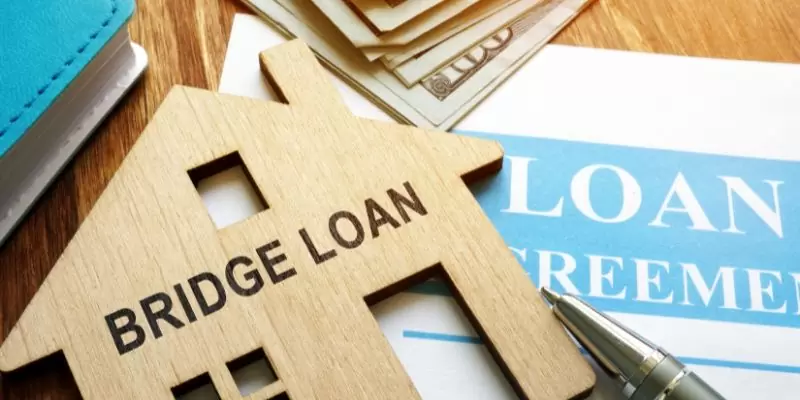You can point the finger at HGTV, the turbulent housing market, or the current trends in the home design industry—but one thing is for certain: the popularity of house flipping is at an all-time high. An exponential amount of savvy real estate professional investors are purchasing ‘fixer-uppers’ with the intent of flipping them over a short timeframe and pocketing a substantial return on investment when it’s all said and done. If you are also considering hopping on to the appealing fix and flip financing bandwagon, you are far from alone; over ten percent of all real estate transactions in the past year consisted of fix and flip projects.
How do I fund a fix and flip project?
But what you may be wondering is how do you go about financing these sorts of deals? Prior to the explosion of the flipping trend, a significant percentage of homebuyers were using out-of-pocket funds to pay for their investment properties. Now, with more new flippers eager to break into the market, more and more potential flips are funded using several different types of loan packages. Which option is best for you? Below is a quick overview of some of the most commonly used funding approaches when it comes to fix and flip investment projects.
Cash
Cold hard cash may sound somewhat archaic or ‘old-school’ but it still reigns supreme when it comes to funding real estate deals. The only problem is that many new investors simply do not have the financial assets to do so. If you are fortunate enough to have adequate cash, utilize it before going into debt. House flippers in debt are more likely to pull the trigger too early when it comes to reselling, which may negatively impact their return on investment. Accordingly, if you have the flexibility to save up for a few months prior to purchasing your fixer-upper, do so. This will ultimately put you in the driver’s seat when it comes time to resell your property—allowing you to wait if necessary for the market to reach prime conditions. If you’ve accrued equity on your primary residence, you can potentially fund your flip with cash via cash-out refinancing. This allows you to take out a portion of the equity you’ve established and add it to your standing mortgage. The subsequent cash flow can then be used to purchase or rehab a secondary property.
Cash-out Refinance Loan
This type of loan allows you to use the equity in your property as collateral in order to borrow money for the project. With a cash-out refinance loan, you can access up to 80% of the value of your home, depending on the lender’s criteria. This gives investors the opportunity to use their existing equity to fund a fix and flip property without having to liquidate any of their other assets.
Home Equity Line of Credit
A Home Equity Line of Credit (HELOC) is a financing option that many real estate investors use to purchase, renovate and resell properties. A HELOC gives you access to credit based on the equity in your home, allowing you to borrow up to a certain amount and pay it back over time with interest only payments.
For fix-and-flip projects, a HELOC is a great option for those looking to borrow money quickly and inexpensively. However, it should be noted that HELOCs are typically only available for primary residences so if you’re looking to purchase an investment property, this may not be the best financing option.
Business lines of credit for fix and flip
If you are an experienced flipper and who has an extensive and successful history of completing fix and flip projects with consistent profits rolling in, another financing option is a business line of credit. A business line of credit is like a credit card with a set limit that you can borrow from as needed. You only pay interest on the amount you use, and you can often withdraw funds quickly when compared to other types of financing. This makes it ideal for fix and flip projects that require immediate access to cash and they can be used repeatedly when needed. However, an excellent credit score and a track record of successful flips are essential to secure this type of funding.
Permanent Bank Loan or Traditional Mortgage
The primary benefit of this type of financing is that it offers relatively low interest rates compared to other forms of financing, such as hard money loans. Additionally, with loans from traditional lenders, such as banks and credit unions, you can take advantage of amortization, which means lower monthly payments since the debt is spread out over a longer period of time.
However, this type of funding is not without its drawbacks. Obtaining a traditional loan from a conventional financial institution can be a lengthy process. It requires gathering all the necessary documents, such as bank statements and tax returns, filling out an application, and waiting for approval from the bank. This can sometimes take weeks or even months, which can be problematic if you are looking to purchase a property in a competitive market. You will also be subject to a credit check and a poor credit history may prevent you from qualifying.
Seller financing
This type of financing arrangement allows the seller of a property to provide the funding necessary for the purchase and any repairs or upgrades. The buyer can then pay off the loan over time, with interest charged by the seller.
The advantages of seller financing are that it often requires less paperwork than traditional bank loans, and it can be easier to get approved for the loan. Additionally, seller financing usually has shorter repayment terms so can be paid off more quickly than traditional bank loans. The downside is that this type of financing typically comes with higher interest rates than other forms of financing.
Hard Money Loans
Hard money loans are a popular financing option for fix and flip investors because they offer fast access to capital. Unlike traditional bank loans, hard money loans are funded by private investors or companies who specialize in providing short-term real estate financing. The loan amount is typically based on the value of the property, rather than the borrower’s financial history.
How we can help
Real estate investors are much more likely to contemplate using alternative or ‘non-traditional’ funding options for their rehab or flipping endeavors. If you are experiencing difficulties obtaining approval for conventional loans or would simply prefer more easily accessible and flexible financing, consider reaching out to a private lender such as Express Capital Financing.
We don’t require a crazy high personal credit score. We are more interested in both your track record as an investor and the viability of your potential fix and flip. Sound intriguing? There’s more. Our loan packages can be closed in a fraction of the time that it takes conventional lenders to get you the money you need. This gives you a leg up on the competition in what is fast becoming a crowded marketplace. Having the peace of mind knowing that you have the requisite funds to submit an on-the-spot offer when you come across the ideal property – and doing so with the full support of a collaborative and flexible lender to coordinate the best loan that works for you, whether it is through a form of bridge loan or cash-out approach -goes a long way especially when you are just getting established in this challenging industry.
Express Capital Financing is a nationwide hard money lender that provides financing for a variety of loan programs, including fix and flip loans to real estate investors. If you are a new or experienced investor, we’d love to learn more about your fix and flip deal to see how we can work together.




